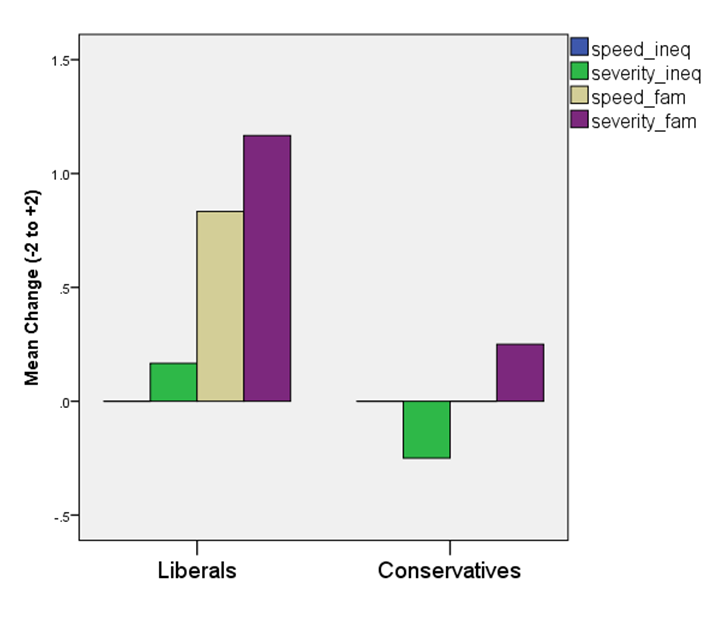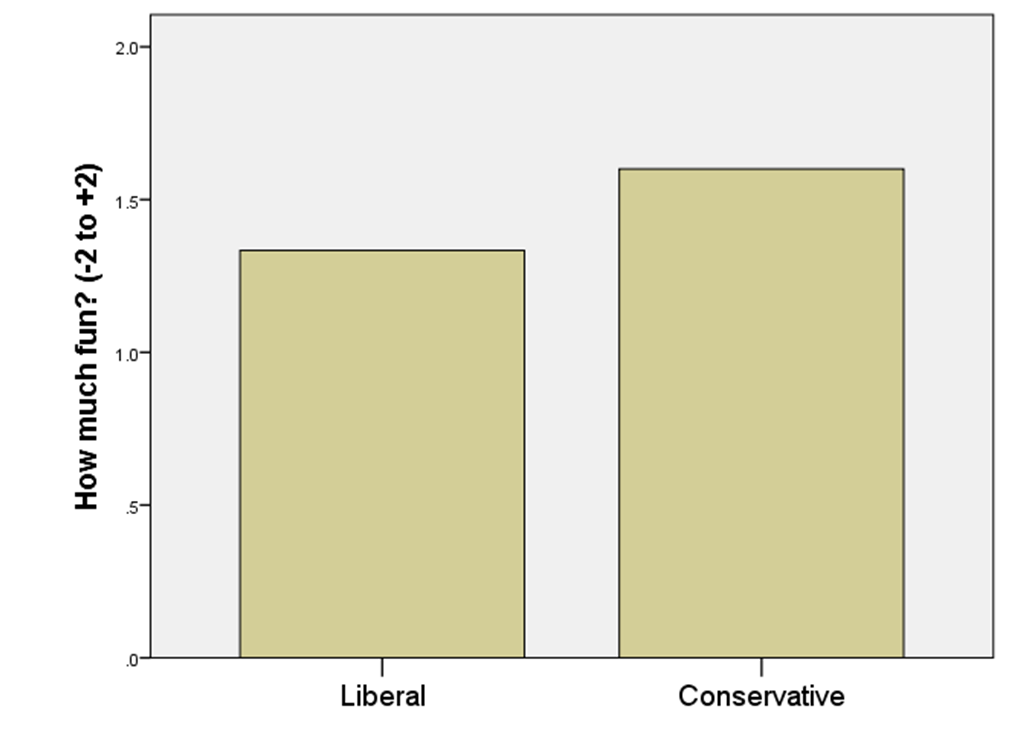Effect of Explanation on Understanding and Position Extremity
1. What They Did-Summary:
This study primarily focused on the effects that explaining one’s position on policy can have on feelings of understanding and position extremity. 198 participants were split into two groups. One group was asked to rate their support or opposition to six different political policies such as instituting a flat tax or instituting a single-payer health care system. Next, the participants were asked to rate their understanding of these policies. Afterwards, they were asked to provide a mechanistic explanation for how two of these policies (chosen at random) work. Lastly, the first group of participants were asked again to rate their position on and understanding of the issues. The second group differed from the first in that they were only asked to rate their position on and understanding of the issues after they had provided an explanation of the policies.
The researchers predicted that people who hold extreme positions are under the illusion that they know more about policies than they really do. Thereby, by having the participants explain how these policies work, they should realize this illusion of understanding and shift to a more moderate viewpoint.
2. What They Found-Results:
The researchers found a significant decrease in ratings of understanding following explanations. They also found that people’s positions on the issues became significantly more moderate following explanations. These findings confirmed the researchers’ predictions.
3. Who Was Studied-Sample:
198 U.S. residents recruited using MTurk, 52% male, 48% female. 40% Democrat, 20% Republican, 36% independent, 4% other.
4. Study Name:
Fernbach et al. 2013, Study 1.
5. Citation:
Fernbach, P., Rogers, T., Fox, C., and Sloman, S. “Political Extremism Is Supported by an Illusion of Understanding.” Psychological Science (2013): 1-8.
6. Link:
http://pss.sagepub.com/content/early/2013/04/24/0956797612464058
7. Intervention Categories:
mechanistic explanation, MTurk, judgment timing
8. Sample Size:
198
9. Central Reported Statistic:
Understanding: “This prediction was confirmed by a significant main effect of judgment timing: Postexplanation ratings of understanding (M = 3.45, SE = 0.12) were lower than preexplanation ratings (M = 3.82, SE = 0.11), F(1, 197) = 34.69, p < .001, ηp2 = .15.”
Position Extremity: “This prediction was confirmed, with the main effect of judgment timing significant (preexplanation-rating conditions: M = 1.41, SE = 0.07; postexplanation-rating conditions: M = 1.28, SE = 0.08), F(1, 86) = 6.10, p = .016, ηp2 = .066.”
10. Effect Size:
Understanding: t(5) = 5.74, p < .01.
Position Extremity: t(5) = 3.93, p = .011.



